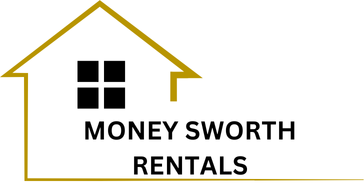Buying a foreclosed property in the UK can seem like a great opportunity to snatch up real estate at a lower price point. Foreclosed homes often come onto the market priced below their actual market value, making them attractive to potential buyers. However, what many potential buyers fail to consider are the hidden costs associated with buying such properties.
The Foreclosure Buying Process
Before we delve into the hidden costs, let’s first understand the process of procuring a foreclosed home. Foreclosure occurs when a homeowner fails to meet their mortgage payment obligations, leading the lender to repossess the property. The lender, typically a bank, then attempts to recoup some of its losses by selling the property at a foreclosure auction.
Dans le meme genre : How Are Changing Demographics Shaping the UK Housing Market in 2023?
If the property fails to sell at auction, it becomes Real Estate Owned (REO), meaning the lender assumes ownership. At this point, the property will usually be listed for sale through a real estate agent.
Hidden Costs of Buying Foreclosed Properties
While foreclosed properties can be a potential bargain, they frequently come with additional costs that are often overlooked. These hidden costs can make an attractive deal less profitable than it initially appears.
En parallèle : What Is the Potential Impact of Electric Vehicle Charging Points on UK Home Values?
Repairs and Renovations
Foreclosed homes have often been neglected for a significant amount of time. This neglect can lead to substantial damage, from leaky roofs to faulty plumbing, which can be costly to repair.
Furthermore, many foreclosed homes are sold "as-is," meaning the lender or bank selling the property will not make any repairs before the sale. As a result, you will be responsible for any necessary repairs or renovations, which can quickly add up.
Legal Fees
Foreclosed properties often come with legal complications. For instance, there could be liens against the property from unpaid taxes or contractor disputes that you will have to resolve. Dealing with these issues can involve hiring an attorney, which could significantly increase the cost of your investment.
Financing
Getting a loan for a foreclosed property can be more challenging than getting a mortgage for a non-foreclosed home. Many lenders view these properties as risky investments and may charge a higher interest rate or require a larger down payment.
Insurance
Since foreclosed homes are often in poor condition, you might find it difficult to secure insurance. Or, your insurance rates might be unusually high.
Foreclosure Auctions
Many foreclosed properties are sold at auctions. These auctions are typically cash-only events, meaning you must have the full purchase amount at the time of the auction. This requirement can be a significant barrier for many potential buyers.
In addition to needing cash on hand, you often won’t have an opportunity to thoroughly inspect the property before the auction. You are essentially buying the house as-is, which can be a significant gamble if the property has extensive damage or other hidden issues.
Time Investment
Foreclosed properties can require a significant amount of time to purchase and rehabilitate. The foreclosure process can also be lengthy, potentially delaying when you can take possession of the property. Once you own the property, repairs and renovations can also take a significant amount of time, particularly if the house is in poor condition.
Impact on Credit
Finally, consider the potential impact on your credit. If you’re purchasing the property to rent or resell, keep in mind that a vacant property can affect your credit score. This impact can make it more challenging to secure financing for future real estate purchases.
Despite the potential benefits, buying a foreclosed property in the UK is not without its challenges. Understanding the hidden costs associated with buying foreclosed homes can help you better assess whether this type of investment is right for you. With careful planning and consideration, you can navigate the process more effectively and potentially find a profitable investment opportunity.
Hidden Benefits of Buying Foreclosed Properties
Despite the drawbacks and hidden costs associated with buying foreclosed properties, there are also undeniable benefits that may convince potential buyers to consider this path.
When it comes to foreclosed homes, the primary attraction is the lower price. These properties are often listed below their market value, making them an attractive option, especially for first-time homebuyers or property investors. The property may have been repossessed by a bank or other mortgage lender in an attempt to recoup some of their lost money, and as a result, they’re often eager to sell quickly, which can lead to even better deals.
Beyond the initial cost of the property, those who buy foreclosed homes also have the potential to see great returns. Despite the potential need for repairs and renovations, the low initial cost often leaves room for a significant profit margin. Whether you’re looking to flip the property for a quick profit or use it as a long-term rental, the potential ROI can be substantial.
Moreover, buying a repossessed property can provide you a unique opportunity to put your personal touch on a home. Since many REO properties need repairs or renovations, you can design and improve the property to your liking, potentially increasing its value even more.
However, it’s crucial to carefully consider the pros and cons before deciding to buy a foreclosed property. While the possible benefits can be attractive, the hidden costs, potential legal complications, and time investment can make this a challenging endeavour.
Conclusion
The allure of buying a foreclosed property in the UK, with its tantalising promise of a bargain real estate purchase, often attracts first-time homebuyers and seasoned investors alike. However, it’s critical to be aware of the hidden costs and potential challenges that can come with such a purchase.
While the price tag on a repossessed house may seem like a steal at first glance, the additional costs of repairs, renovations, legal fees, challenges in financing, and insurance costs can quickly mount up. Not to forget the time investment, the process of purchasing and rehabilitating a foreclosed property can be lengthy and taxing.
On the flip side, buying foreclosed homes also presents potential benefits. With the right planning, adequate funding, and a dose of patience, purchasing a repossessed property can offer a lucrative return on investment, providing an opportunity to buy low, renovate, and sell or rent out for a higher price.
In conclusion, the decision to buy a foreclosed property should not be taken lightly. Prospective buyers should conduct thorough research, consult with estate agents or real estate experts, and consider their financial situation and tolerance for risk before diving into the foreclosure process. The hidden costs are real, but with due diligence and careful planning, the potential rewards can be substantial.











